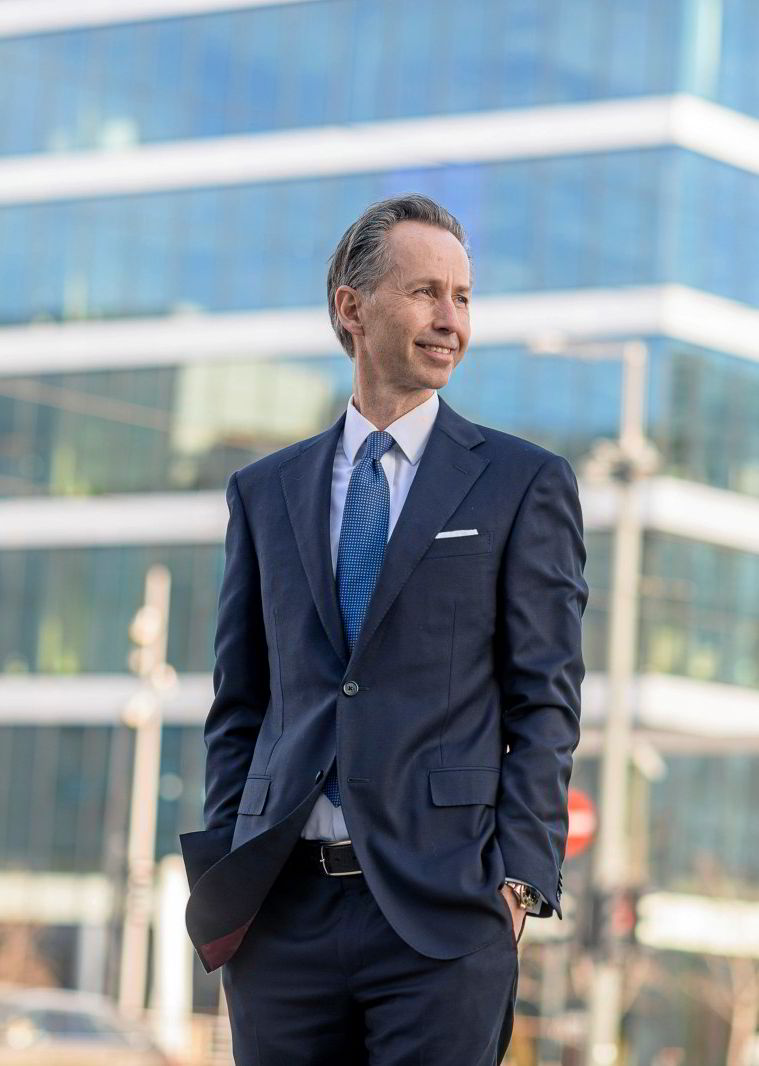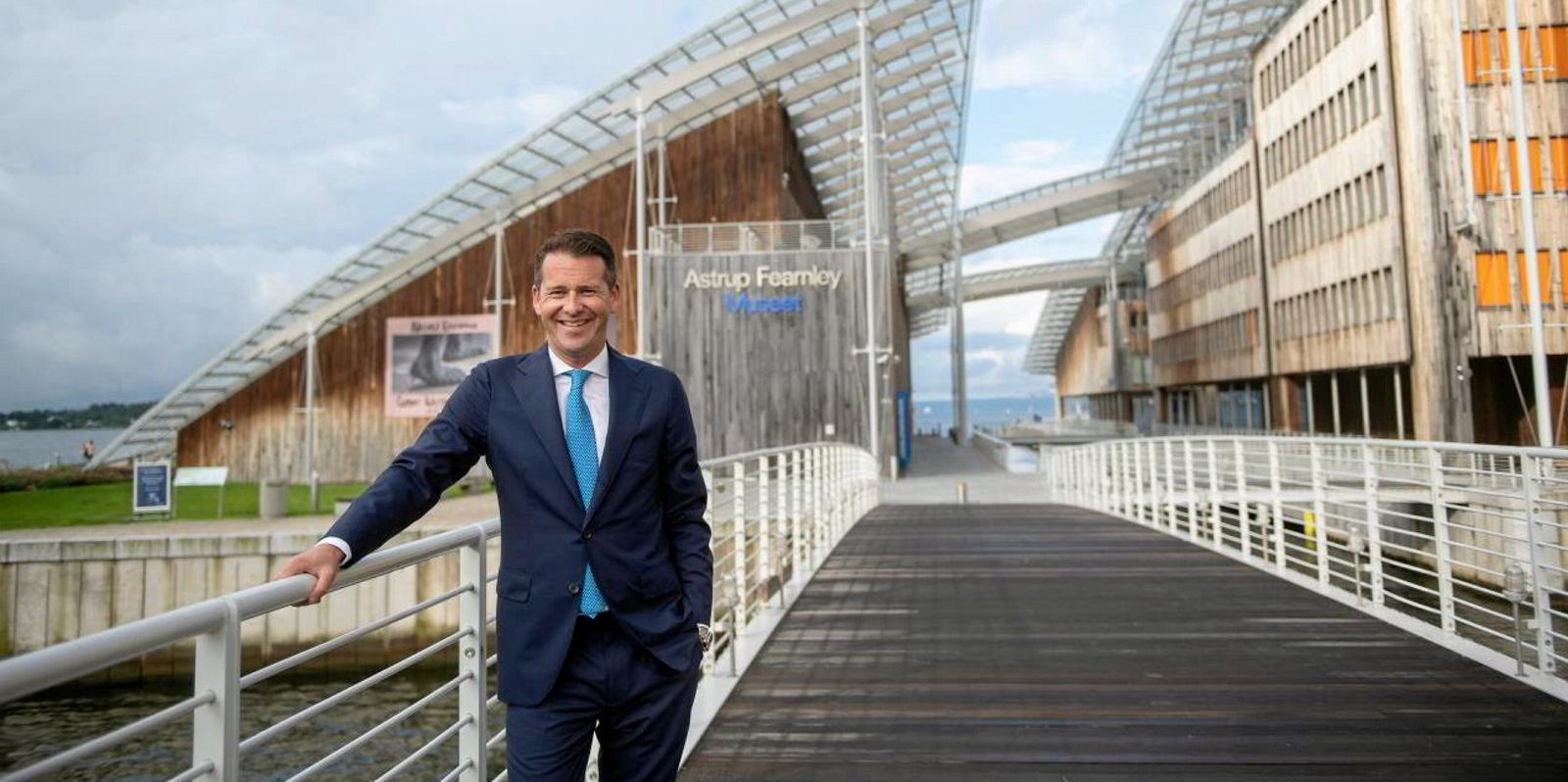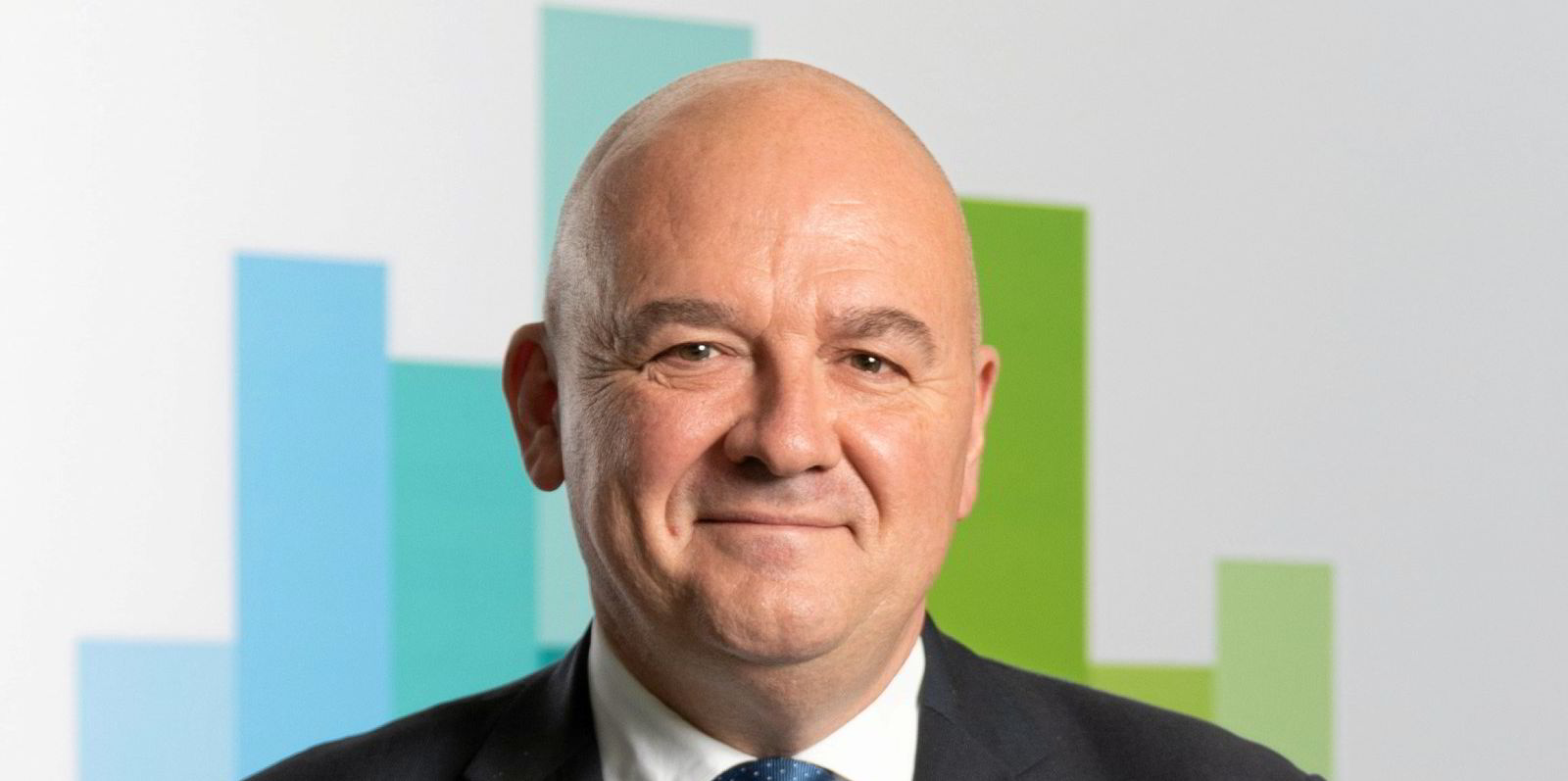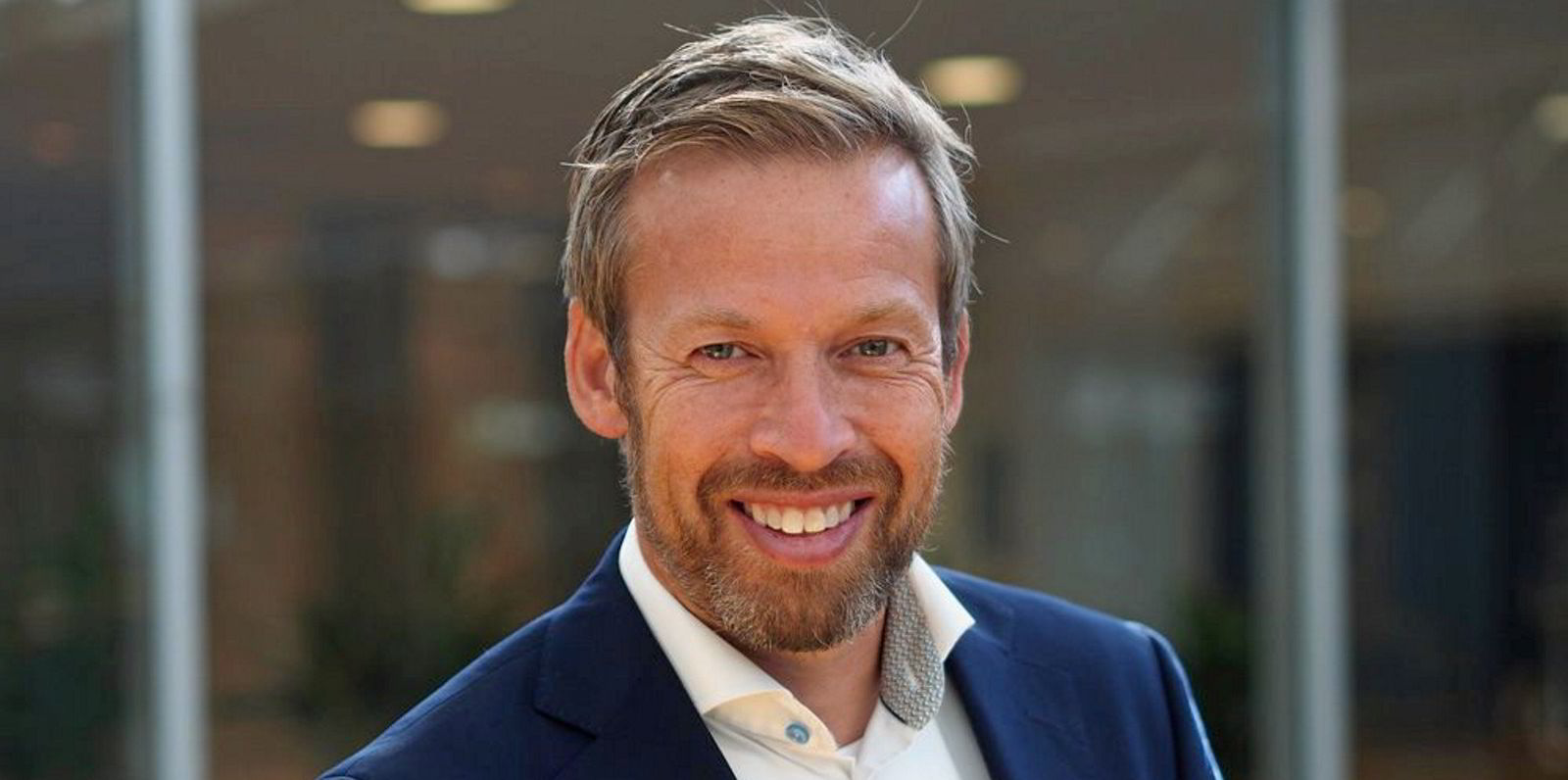Green renewable power and ‘brown’ energy from oil and gas will go “hand in hand”, according to the CEO of Norway’s Astrup Fearnley Group.
The Norwegian group is broadening its focus to include renewables and clean technology to meet growing demand from clients, but said that oil and gas will continue to be important for its business, which spans shipbroking, offshore services and investment banking.
“We have to be able to provide services our clients want. The world is changing extremely fast,” group CEO Marius Hermansen told TradeWinds.
“Looking at the energy market over the past six months — or six weeks — there is real demand for the services we bring to the table, especially in comparison with more traditional shipbrokers.”
Transactions related to renewable utilities and “clean tech”, for instance, accounted for one-third of Fearnley Securities’ revenue last year. This has comprised offerings for battery-powered trucks, floating solar installations, carbon capture and other battery technology. The firm raised around $1.1bn in this area during 2021.
“It’s more than just windmills,” Hermansen said. “We have moved quite far away from the traditional shipbroking and shipping services.”
Around half of Fearnleys group’s revenue is generated by its physical broking activities and the other half comes from its financial broking and services.
Peter Wessel, the CEO of Fearnley Securities, told TradeWinds that the investment bank is trying to capture opportunities across the energy space, from solar to upstream oil production.
“I think the stability or ability to source energy in any form is probably on top of the agenda again, more than just the clean energy. I think the political landscape is changing and also the investor sentiment is changing in that way,” Wessel said.
In Norway, discussion has turned to whether the country should pump more oil and how it can export it to Europe, he added.
“When the lights go out in Germany, I think they worry less if it’s brown or if it’s green,” Wessel said.
New leadership
Hermansen is making his mark since joining the group as CEO last July.
He said his key priorities are to modernise and grow the group and change up the company culture to make a “younger, dynamic, agile business”.
“We are turning from a family-owned business to a more dynamic and bigger company. We need to grow and follow our clients in terms of the service provided,” he said.

Hans Rasmus Astrup, the former head and owner of the Norwegian shipbroking group, passed away last April.
The group is wholly owned by the Hans Rasmus Astrup Foundation but is transitioning to a partnership model with its employees, which should be completed by mid-2022.
“It’s much easier to continue building a successful company when you have ownership by the employees,” Hermansen said.
He believes the group belongs better within private ownership — going public would not be an option at this time.
Investment banking
2021 saw lots of new entries to the capital market and the highest activity in several years, but activity has been more muted in 2022 so far.
For now, the big hurdle is uncertainty created by the war in Ukraine, the energy crisis and the sharp rises in interest rates seen during 2022 so far.
Wessel said he expects transaction activity to pick up again in capital markets once participants have better visibility and understanding of the situation. There already are signs that things are becoming clearer.
“I see this as a speed bump before the call, before transaction activities go back to more normal levels again,” he said.
“We see the rates coming up, we see the energy prices stabilising and we see the market now at the end of Q1 and the beginning of Q2 starting to pick up again, when it comes to the number of transactions.
“They will not go away, they will just stay off the market for a while and see what happens and then come back.”
Much like the wider group, Fearnley Securities is focused on growth.
“We’ve been working over the last five years to diversify some of the income stream that we have,” Wessel said.
“Lately, we’re taking a bigger approach to the energy space — that goes for renewables, clean tech and everything that falls into the wider definition of ‘energy’.
“It used to be crude and gas and now it is so much more.”






